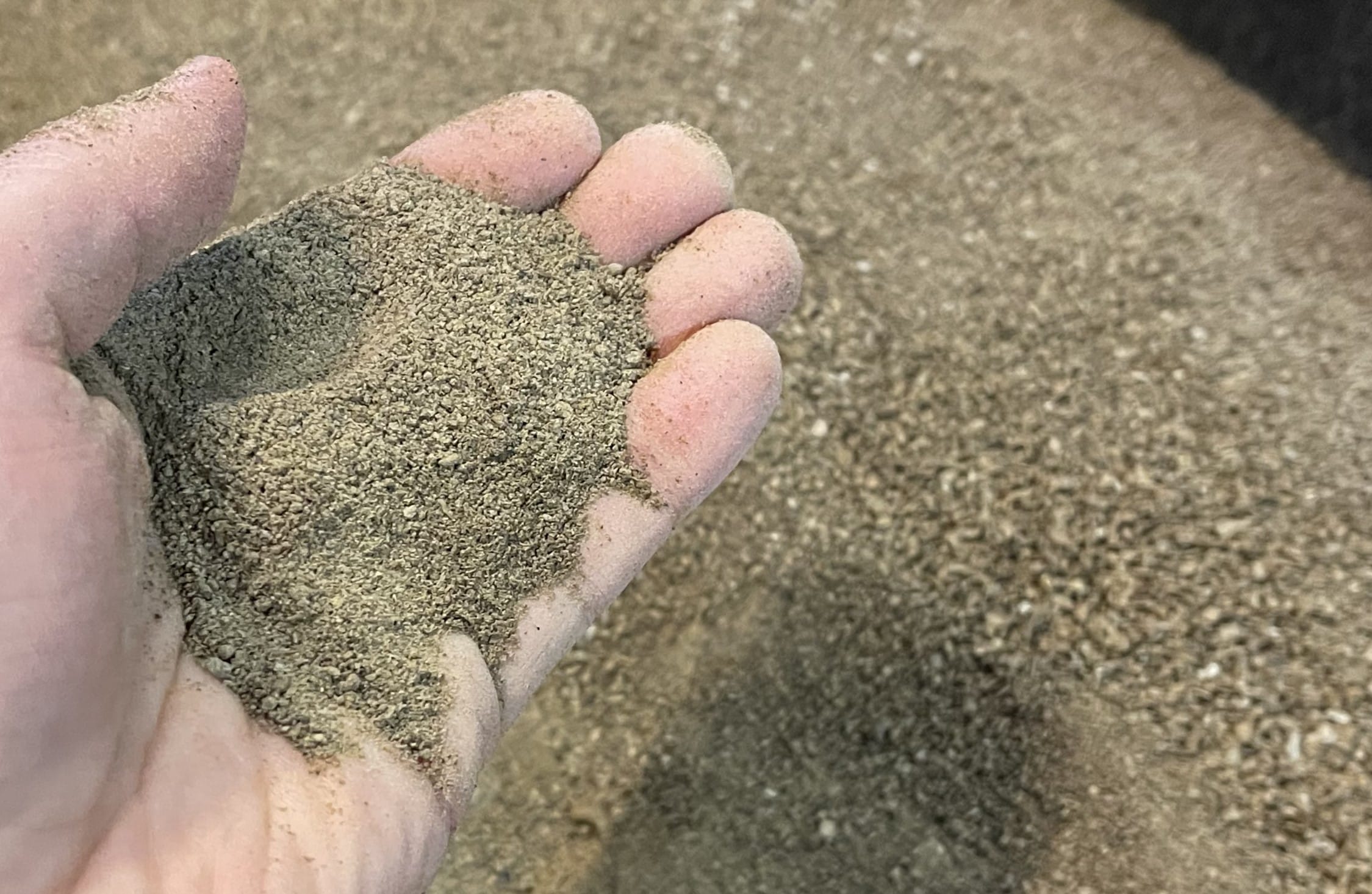
Black Soldier Fly Frass: A Valuable Fertilizer By-Product
Black soldier fly (BSF) farming produces frass, a nutrient-rich by-product consisting of larval excrement, uneaten organic matter, and exoskeletons. This organic material is an excellent fertilizer with numerous benefits for soil and plant health.
Benefits of Frass:
Nutrient-Rich: Frass contains essential nutrients like nitrogen (N), phosphorus (P) and potassium (K), as well as micronutrients and beneficial microbes.
Soil Health: It improves soil structure, water retention and microbial activity, promoting healthier plant growth.
Disease Suppression: The chitin in frass can enhance plant resistance to pests and diseases.
Sustainable: It recycles organic waste into a valuable resource, reducing reliance on synthetic
fertilizers.
Treatment Before Use:
Frass must be properly treated to ensure safety and effectiveness:
Drying: Fresh frass is dried to reduce moisture and prevent mold or odor.
Screening: It is sieved to remove possible large particles or debris.
Composting (Optional): Some farmers compost frass to stabilize nutrients and enhance microbial activity.
Pathogen Testing: Ensuring frass is free from harmful pathogens is critical, especially if derived from waste substrates.
Factors Influencing NPK Values and Composition:
Substrate Type: The organic material fed to the larvae (e.g., food waste, manure) directly impacts frass nutrient content.
Larval Digestion: The efficiency of nutrient extraction by larvae affects the remaining nutrient levels in frass.
Harvesting Stage: The age of larvae at harvest influences frass composition, as older larvae consume more nutrients.
Processing Methods: Drying, composting or screening can alter nutrient concentrations and microbial content.
Learn more about BSF farming in the
Insect Farm Hub!
Manna Insect has launched a comprehensive insect farming platform designed for learning, managing, monitoring and networking. There are tons of free content about insect farming, as well as a lot of paid premium content, that dives even deeper in black soldier fly business.
